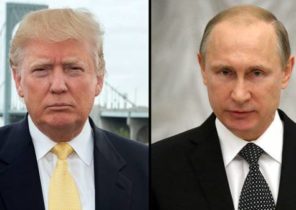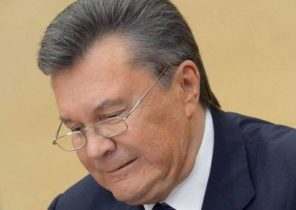Pandemic and quarantine unleashed economic activity, and with it the demand for energy, triggering falling prices and fierce competition of producers in energy markets. The current crisis is not a normal cyclical downturn, and the shock, can not only drastically reduce the revenues of the Russian energy exports, but in the long term — a major change in the principles that organize the world energy markets.
The oil industry
The world oil industry is now experiencing the deepest crisis in its history. The main blow struck an unprecedented fall in demand by 30% in April and nearly 10% on average by year (a decline of 9.3 million barrels per day, according to the International energy Agency). The main drivers of world consumption — China and India — are unlikely to provide additional demand for oil this year.
Combined with oversupply that led to a tremendous imbalance with which market participants have never before encountered. Hence a record price drop: from January to mid-April, the Brent price decreased 3.5 times, while futures on WTI for the first time in the history of trading were sold at a negative price, demonstrating the vulnerability of the modern system of pricing.
At first, the market situation was further complicated by the rivalry between producers of oil, but extraordinary circumstances soon forced them to sit at the negotiating table. The result — an agreement on production cuts for two years between OPEC+ (including 8.2 million barrels per day on average in 2020) and for the first time in history, countries outside the coalition (USA, Canada, Brazil and others are going to cut production to 5 million barrels a day, although no hard commitments, these countries do not have).
The agreed reductions roughly correspond to current estimates of the decline in demand in an average year, but there are important details. This reduction should be enough to store not crowded and the prices not gone into the negative zone, but no more. And for the successful implementation of the agreement on a coordinated effort of all market participants. If the promised reduction is not done, it may lead to glut in the market and overflow of oil storage facilities around the world, and hence to a further decline in prices.
In fact, the agreement allowed us to avoid the worst-case scenario, but does not guarantee a rapid stabilization of the market. In all scenarios the prices in 2020-2021 years will not return to pre-crisis level and will, apparently, be at below $30 per barrel.
In the short term the main challenge for oil companies around the world will be a radical reduction of costs and preservation of the Fund the wells due to commitments on quotas and under the pressure of low prices. Global investment in oil production in 2020-2021 years will be reduced by 45%, which can further lead to a crisis of neconventionale, the oil shortage in the market and the next price cycle.
Russian manufacturers are quite competitive in the global market, but aggressive price war yet leads to a fall in the price of Urals to the level at which the revenue budget is almost zero and new projects have become unprofitable, and the current ones will work on the verge of profitability.
In addition, the industry has an unprecedented speed and depth of the production cuts. How to carry out this reduction with the least damage to future production, for companies and for the budget (and to do it quickly)? To do this, Russia will have to either temporarily freeze or seriously to alter to the new realities of existing tax, licensing and other regulation of the industry.
Gas industry
The gas industry has suffered from falling demand is less than the oil. Gas demand is reduced mainly in the industrial and commercial sector. In power dynamics primarily depends on national regulation and structure capacities. In General we can talk about 3-5% decline in the average annual global demand for gas.
On a global scale, most likely, will do without such disasters, as in the oil market, but in Europe the demand for gas in the second and third quarters, combined with high filling silos can lead to a situation similar to what is happening in the oil industry. The main intrigue will be in who would reduce the supply — manufacturers of mains gas or LNG, and try if they can agree on a coordinated reduction of supply to maintain prices, similar to OPEC, or will use the entire Arsenal of methods of non-economic competition?
In the medium term there is considerable risk that the timing of existing projects (new pipelines, LNG plants, chemical production) will have to be postponed because of the failure of delivery schedule of equipment and quarantine workers. Crown-the crisis will probably be forced to adjust the investment program to freeze or terminate part of the new, especially capital-intensive projects. The approach of the financial sector to invest in the gas industry is also subject to change — major projects will become more difficult to obtain the necessary funding (unless they have strong public support).
Changes can be so fundamental that will affect the contract model in the industry — from the review of current agreements to the inability to enter into new long-term contracts. In Asia have already appeared cases when importers refer to force majeure and refuse to execute contracts for the purchase of LNG cargoes. This happened before only in extraordinary situations, like military action.
The fall in export revenue
For Russia, the decline in the energy markets means a drastic reduction in export revenues, the revenues of the companies revenues. The calculations show that even in the most optimistic scenario, the revenues from oil exports reduced 2.5 times compared to pre-crisis levels. It is possible and more grim developments with a fall in budget revenues in 4-10 times in 2020.
In the pessimistic scenario (decrease in global demand by 11 million barrels per day and non-compliance with production quotas), the Russian oil industry may be on the verge of break-even for existing projects and practically reduce the budget revenues from export duties and tax on extraction of mineral resources.
The Russian gas export is also the negative effects are already visible, although their impact on the budget is much less. Judging by the results of the first quarter and a decline of European demand for the year may be expected to reduce supplies of Russian pipeline gas to Europe 25-30 billion cubic meters. And the surviving supplies will have to implement at much the falling price of gas. The saturation of the market, the end of the heating season, the continued quarantine, all this will pull gas prices in Europe are even lower.
Actually it is about double the fall in prices and the 20-25% decline in the volume of Russian exports of oil, gas and coal at the same time, equivalent to a loss of 60% of export revenue. For the budget this means a sharp reduction in revenues (about 30%) just at the moment when the people and businesses most in need of state support.
The loss of export earnings the oil and gas sector in 2020 will be almost equal in terms of the national welfare Fund. So finding sources of funding for incentive programs will not be easy.
For energy companies everything that happens will mean a mode of rigid economy and reduction of investment programs, which in turn will inevitably affect the related industries. According to our calculations, this may lead to additional reduction in GDP of the country (in addition to the direct impact of coronavirus and restrictive measures to combat it) on 5-13% in 2020 depending on the scenario.
The long-term prospects
Nevertheless, the current shocks for the Russian energy sector, while gravity can seem like a small thing against the backdrop of their possible long-term consequences. It is not even about competition with Saudi Arabia in the oil market or the American LNG in the gas (though there is a nasty trend). And not about the irretrievable loss of oil reserves due to commitments to reduce production as part of the deal, OPEC+.
Importantly, a high probability that the crown-the crisis will further strengthen and accelerate the trends toward decarbonization, decentralization and digitalization by giving additional impetus to the energy transition, especially in Russia mainly for the European market. Now from governments and international organizations all the louder calls to go low-carbon path of economic recovery. And the instability of the oil market enhances the competitive position of renewable energy that is attracting increasing attention from investors.
Further recovery may follow a traditional path, or the path of acceleration energierecht. In the first scenario, low oil prices to spur the demand for hydrocarbons, and it will start to recover quickly. Then the markets will feel a colossal failure in investment in the crisis years, which will lead to new jump of the oil and gas prices. In turn, the rising price of hydrocarbons will again revive interest in alternative energy sources and increase energy efficiency.
In a scenario of accelerated energierecht massive state support will go to the promotion of green energy that will benefit the industries competing with oil and gas, and will increase pressure on demand. Importing countries can emerge from the crisis with a transformed grid, the severe restrictions on carbon footprint for any imported raw material and permanently reduced demand for hydrocarbons.
In these circumstances, the Russian oil and gas sector must now not only survive, but also to think long-term about the options industry restructuring and integration of the hydrocarbons in the green agenda. A special role can be played by the trend toward decarbonization of oil and gas is a complicated, expensive process, requiring new technologies and competencies, we don’t have yet. But other options to ensure long term sustainability for our export-oriented resource economy is also not visible.







